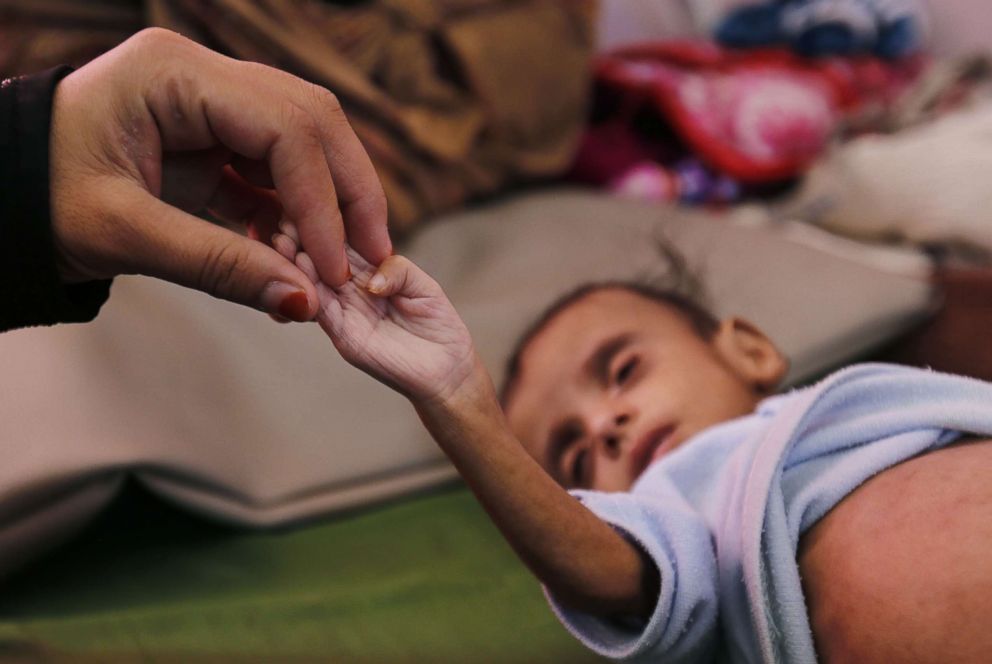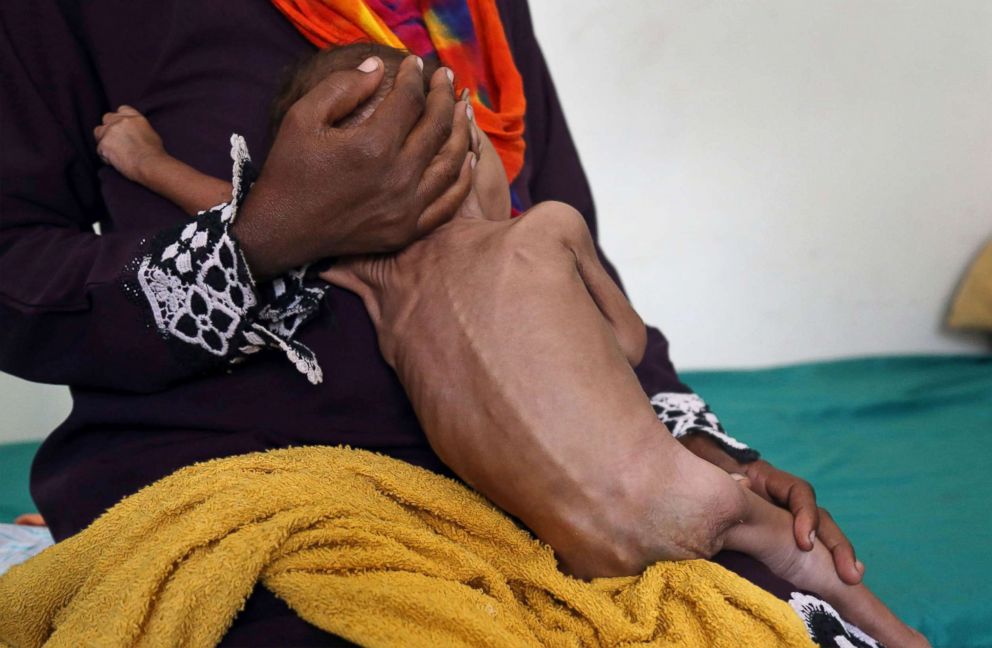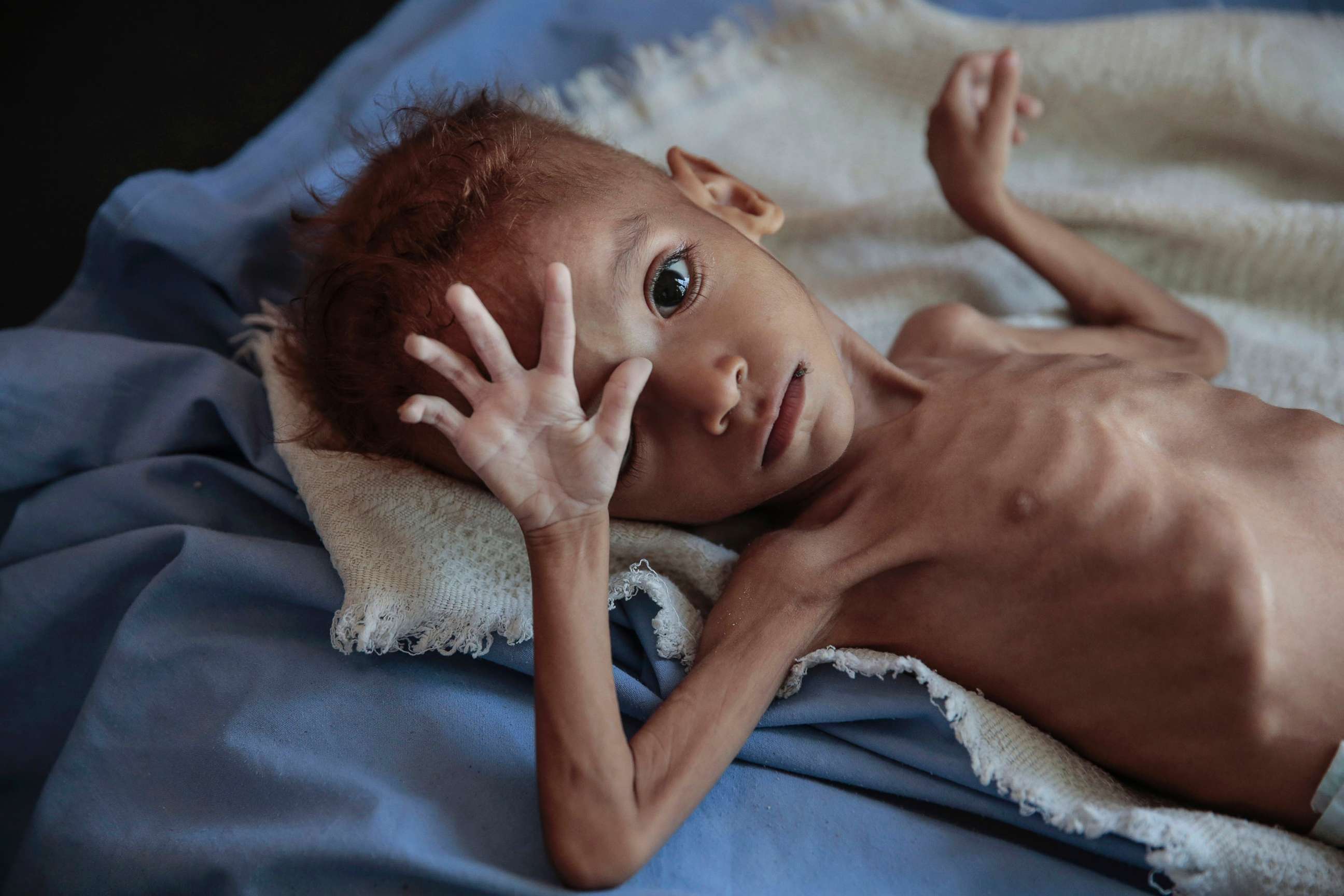85,000 children in Yemen have starved to death: Save the Children report
Close to 85,000 of children have died between April 2015 and October 2018.
LONDON -- Approximately 85,000 children under the age of 5 have died in Yemen from severe hunger since April 2015, according to a new report from Save the Children.
Using data gathered by the United Nations, Save the Children looked at the mortality rate of children under 5 years old who were treated for severe acute malnutrition and calculated that close to 85,000 of them have died between April 2015 and October 2018.
"Children are usually the most vulnerable in situations of famine or emergency food security and are particularly susceptible to malnutrition. Diseases easily pray upon their weakened immune systems," Tamer Kirolos, Yemen director for Save the Children, told ABC News in an email. He added that 5.2 million Yemenis children are at risk of famine.
"We cannot stand idly by and do nothing. The world needs to act," he said.
In a briefing in October, Mark Lowcock, the United Nations Under-Secretary-General for Humanitarian Affairs and emergency relief coordinator, said nearly 14 million people in Yemen -- or about half of the country’s population -- are facing pre-famine conditions.

While a famine has not yet been declared, the United Nations warned that “there is now a clear and present danger of an imminent and great big famine engulfing Yemen -- much bigger than anything any professional in this field has seen during their working lives.”
But Kristine Beckerle, a Yemen researcher for Human Right Watch’s Middle East and North Africa Division, said an official declaration of famine in Yemen is beside the point.
“The fact of the matter is people are dying now. Kids are dying now. Millions of people are going hungry now, in a context where, if states wanted to, they could in fact address the situation, minimize civilian suffering and mitigate civilian harm,” Beckerle told ABC News.
She added, “The U.S. could play a really important role here if it were willing to spend the political capital to do so.”

Instead, the Trump administration released a statement on Tuesday siding with Saudi Arabia in the conflict, saying it will withdraw from Yemen as long as the Iranians agreed to leave.
The statement also highlights the $110 billion sale of U.S. military equipment to Saudi Arabia, equipment that the country uses in the conflict in Yemen.
Earlier this week, ABC News reported that Yemeni officials and Houthi rebels have agreed to attend peace talks in Sweden in an effort to end the civil war in the country.

"These talks are the best chance of securing a resolution to the conflict," Marcus Skinner, senior policy adviser for International Rescue Committee, told ABC News. "The claim that there has been a pause in the fighting doesn't translate to what we see on the ground and the assault on the city reduces the chances the talks will succeed."
Diplomatic pressure by key world leaders like the United States and the United Kingdom are needed to stop the violence and get all sides of the conflict to Sweden, he argued.
Exact number of fatalities in Yemen have been difficult to report for humanitarian groups and officials on the ground, with many hospitals being targeted by rebel groups.
“The war and violence need to stop for human suffering to stop,” Skinner said.




